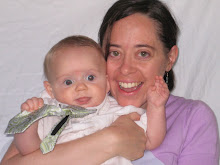poverty paradigm

I just got back from spending two weeks in Ghana (hence the lack of blog updates--many apologies to the unknown void). In all my international travels, I have never seen such widespread poverty, nor have I seen people so content. Hmmm, maybe content is the wrong word because I have also never been hit up for money by so many people so quickly. I was in Accra, the developed capital, and I was somewhat dumbfounded by the sprawling poverty that we encountered. But the people are busy and about, most of them hawkers. So, while their roofs barely do enough to keep out the sun (but NOT the rain), they are going about their lives in an unassuming way.

Compare, then, this international scene of poverty to what I will be doing this summer: working with domestic poverty. I will be gathering data for a local nonprofit in Salt Lake City that gives out micro-loans to residents who can't get loans from a regular bank. They may have running water, a roof over their head, and heat in the winter, but the poverty they are in prevents them from accessing many other parts of society.

And so I raise a few questions (some of the bajillions that are floating around inside my head): when did poverty start? How did we decided to define poverty based on economic terms? And, does knowing the cause and root of poverty help with the solution?
A few answers: poverty is so much more than a lack of financial resources. If you don't have money, you don't have security, stress increases, and life becomes complicated. Your life approach is different. Relationships matter more than getting to an appointment on time. Is this all bad? Not necessarily. And who's to say what the line of poverty is? I can say that the little boy toddling out of a broken down shack without running water and no shoes is in poverty; but so can the man on the street of a beautiful homes who can't afford to pay for his electricity. So poverty is more than a financial measurement; it's a lack of empowerment.


0 Comments:
Post a Comment
<< Home